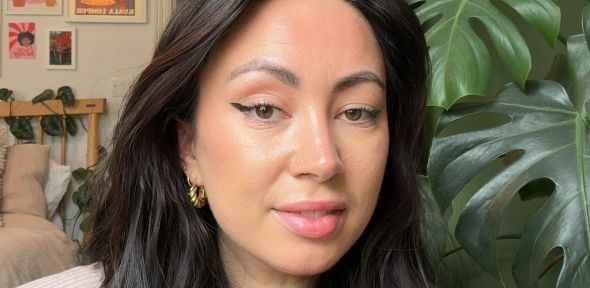
Faculty of Modern and Medieval Languages and Linguistics Raised Faculty Building University of Cambridge Sidgwick Avenue Cambridge CB3 9DA United Kingdom
Supervisor: Dr Kirsty McDougall
Research Topic:
The phonetic and perceptual underpinnings of voice distinctiveness and voice quality.
I’m a first-year PhD student in the Phonetics Lab with a research background in forensic phonetics and sociophonetics. I completed an undergraduate MA in English Language and Literature at the University of Edinburgh and an MSc in Forensic Speech Science at the University of York. After this, I worked for four years in the Phonetics Lab here in Cambridge on a large, cross-institutional project called ‘Improving Voice Identification Procedures’ (IVIP) where I researched, presented and published on various aspects of earwitness identification evidence, specifically voice parades. Now I am taking on independent research, I’m curious about what makes a voice unique, memorable or distinctive, whether that’s in terms of acoustics, phonetics or listener perceptions.
Research:
I’m interested in the relationship between different measures of voice distinctiveness, specifically in the context of forensic phonetics. Previously, in my work on the IVIP project, we found that listeners perceive voices as sounding more different from one another when they have a more ‘common’ pitch value than when they have an unusual pitch value. My PhD extends this investigation to measures of voice quality to understand whether listeners perceive certain voice quality settings as making a voice sound more or less distinctive. I will investigate how this relates to extracted acoustic measures of distinctiveness. My project will also examine the effect of perceived voice distinctiveness on how well listeners can remember both the voice and the content of what was said. My research is funded by the AHRC as part of the Open-Oxford-Cambridge DTP, in collaboration with the National Crime Agency.
Voice distinctiveness, voice quality, accent judgements and prejudice, forensic phonetics, voice parade procedures, sociophonetic variation, speech disfluencies
Publications:
Pautz, N., McDougall, K., Mueller-Johnson, K., Nolan, F., Paver, A., & Smith, H. M. J. (2024). Time to reflect on voice parades: The influence of reflection and retention interval duration on earwitness performance. Applied Cognitive Psychology, 38(1), e4162. https://doi.org/10.1002/acp.4162
Pautz, N., McDougall, K., Mueller-Johnson, K., Nolan, F., Paver, A., & Smith, H. M. J. (2023). Identifying unfamiliar voices: Examining the system variables of sample duration and parade size. Quarterly Journal of Experimental Psychology, 76(12), 2804–2822. https://doi.org/10.1177/17470218231155738
Jat, S. C., McDougall, K., & Paver, A. (2023). Pausing and the ‘Othello Error’: Patterns of pausing in truthful and deceptive speech in the DyViS database. International Journal of Speech, Language and the Law, 30(1), 87–118. https://doi.org/10.1558/ijsll.24331
Conference Papers:
McDougall, K., Paver, A., & Nolan, F. (2023). Voice distinctiveness: An investigation of the role of speakers’ position in a population with respect to f0. Proceedings of the 20th International Congress of Phonetic Sciences, 3790–3794.
Other activities and roles
Research Assistant on ESRC-funded project 'Improving Voice Identification Procedures’ 2020-present
Research Assistant on CHRG-funded project ‘Sociophonetic Variation in Aboriginal and Mainstream Australian Englishes: A Study of Disfluency Features’ 2023-present
Professional membership: International Association for Forensic Phonetics and Acoustics
British Association of Academic Phoneticians
International Association of Forensic and Legal Linguistics


